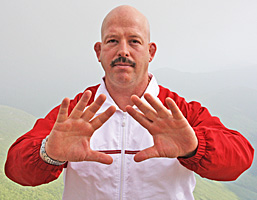Ever get called a fault finder? Think it’s a negative?
Well, it most certainly can be, and oftentimes is – but leave it to el Furecat to put a positive spin on what so many people assume to be a horrendous negative.
As I often say, there are positives in every negative and negatives in every positive. Almost nothing in the human or earthly realm is one hundred percent one-way.
You may recall the line about how “no one ever erected a statue to a critic.” This line may be true, but it doesn’t mean you should negate ALL statements that are “supposedly” negative.
Why do I highlight the word “supposedly?” Because correcting course by becoming aware of your mistakes is supposed to be a positive.
Think of it this way, although fault finding can sting, the depth of the sting or the lack thereof, usually depends on WHO is finding fault, and how YOU process the information.
For example, the other day a woman wrote to tell me I had a typo on my bio page. She pointed out my use of the word “doormat” and suggested it should read “dormant.” I wrote to inform her that her evaluation was incorrect.
I didn’t condemn the woman; nor was I upset, although I could have been offended.
At this juncture in my career, I am used to men and women writing to tell me about my typos. I am also used to the reality that none of them ever point out anything good about my writing before they inform me of my error. They truly pride themselves on finding fault and expect me to see their keen insight the same way they see it in themselves, i.e. they are merely “trying to help.”
In the olden days, when I received emails that told me I had a typo, it used to irk me. Who the hell is this person? What has he or she ever written?
Yes, the answers to the questions shown above make a big difference. Why? Because if the person writing me has street-cred, if he or she is a best-selling author or seven-figure copywriter, well then, I’m probably all ears, don’t you think?
At the same time, if someone fault-finds and is wrong, I immediately let the person hear it. Some take this well – others don’t.
I remember a lad a couple years ago, who told me that I was making a mistake on a product. He was totally off-base and wrong, not only then, but to this very day. The dude didn’t appreciate me pointing out that he was wrong, and told me I am an egomaniac and should “stop being so defensive.”
Wait a second, bubba. You accuse me of doing something wrong, and when it’s pointed out that I’m not wrong, you play the “don’t be defensive” card? It’s a strange game some people play. They must stay in control, even when you prove them wrong.
Those with the highest credentials generally don’t have the desire to point out a typo or two in my emails, unless we are friends, and in that case, they generally just blurt out what they uncover.
“Hey Furey, page three, line six, you misspelled the word bloke. It’s not spelled bloak.”
“Aaah,” I reply. “You’re on it. Thanks.”
But if the person is wrong, I let him know. Then it’s time to see how HE reacts.
If he says, “Don’t be so defensive,” I realize I’m dealing with a lunatic.
Now let’s put some moolah where the action is. “No one ever builds a statue for a critic,” we are told, but… if you are PAID to be a critic, you may find yourself enjoying the enormous upside of fault-finding.
I just read today’s New York Post headlines, as I do each day. They were jumping on the shock jock, Howard Stern, saying he’s gone soft. Ouch. Then they thumped the Oscars for being the bore that they are. Viewership is down to less than 10 million. Double Ouch.
Every highly paid news anchor is a master fault finder. Diddo for the highest-paid coaches in sports. Same-same for writers.
Fault-finding is a highly profitable skill – when it’s placed in the proper hands.
As a champion athlete and martial artist, as a best-selling writer, as a parent and coach, I am a master fault finder. I get paid handsomely to find the bottlenecks that, when removed, make what you’re doing masterful – or at the bare minimum, a helluva lot better.
This means, if someone calls me a fault finder or a critic, it makes me smile.
It also means that I search for coaches who don’t polish my apples or shine my bald head. I look for coaches who will tell it to me straight, without all the bullocks.
Without a doubt, there are plenty of coaches who take fault finding too far. They never give any praise. All they do is belittle you and cut you down. That’s not the type of coach I look for. Similarly, I don’t want a coach who is always positive, who will never tell me what’s wrong because he’s afraid my feelings will get shredded.
Ideally, what I am looking for is a coach who gives me honest feedback; someone who tells me when I’m coming along, when I’m improving – but is also willing and capable of telling me that something isn’t up to a certain standard.
Show me a coach who does nothing but sing your praises, and I’ll show you a loser. Every winning coach in every sport is a master fault finder, and they can and do take their statements and their record to the bank.
See it. Feel it. Live it.
Matt Furey
P.S. Theatre of the Mind and Zero Resistance Living are waiting in the wings for those of you who are ready to fly. Get some NOW.

